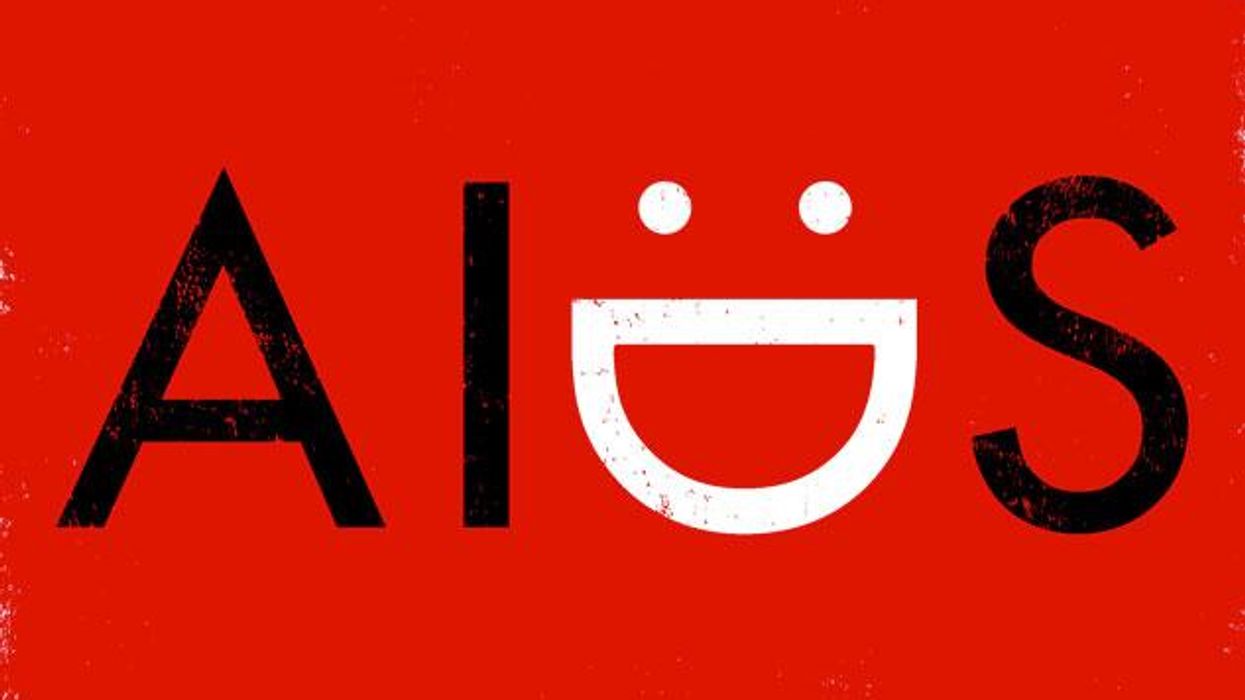Illustration by Edel Rodriguez
An infamous 2002 South Park episode jubilantly declared: "It's been 22.3 years, so AIDS is finally funny!" Twelve years on, is it still too soon?
In the earliest days, when the plague first affected Haitian immigrants, gays mocked their own prejudice and self-hate, proclaiming that the hardest thing about having AIDS was convincing your family you were Haitian. Later, men wasting away in AIDS wards mocked society's prejudice, saying they were sick of eating pizza, the only thing that could be slid beneath hospital doors.
There were plenty of homophobic jokes early on as well, many about Rock Hudson, for example his new line of designer jeans -- with the zipper in the back. Or the one I most often heard in school, "What does GAY stand for? Got Aids Yet?" Bigoted humor is a classic tool of oppression but it can be reclaimed, diffused, and gutted of its power. Yet, the Internet still explodes with outrage when a fag hag like Joan Rivers jokes that the AIDS patients she's helping are refusing to die, or when Sarah Silverman, another ally, says if God gives you AIDS, make lemon-AIDS. Comedy legend Mel Brooks, the Jew who wrote a musical spoof about Hitler, once said, "Bad taste is simply saying the truth before it should be said."
Not that his assertion applies unconditionally. Sometimes bad taste is just plain ignorant, offensive, and untrue. Consider Quentin Crisp, who was stripped of his gay emeritus crown after recklessly dismissing AIDS as a fad in the 1980s. Or former IAC publicist Justine Sacco, who got a great deal of PR last year with her staggeringly racist -- not to mention unfunny -- tweet heard around the world: "Going to Africa. Hope I don't catch AIDS! Just kidding. I'm white!"
While Crisp made up for his callousness by secretly donating thousands to AIDS charities in his final years, others, like Sacco, issue empty apologies when called out, saying they were insensitive to the disease and not its sufferers. This rationale sounds perilously parallel to loving the sinner and hating the sin. But what about those who have insider experience and education, are competent in the culture, and are clearly laughing with us, not at us? Can South Park get away with calling AIDS funny? Joan Rivers? Drag queens? Just those with AIDS? HIV? Me?
To test the waters, I posted a question on social media asking for AIDS jokes. While several people supplied actual jokes of varying quality, others deleted or blocked me, and one now-former friend even proposed lighting me on fire to see how hilarious that would be. The question was posed without context or explanation, but I didn't expect so many vitriolic "THERE IS NOTHING FUNNY ABOUT AIDS!" comments, in such shrill all-caps shouting that I nearly replied I don't need hearing aids.
In a subculture renowned for its sardonic, cutting wit, you'd think we could laugh at anything. Absent a cure, however, laughter without malice is not always the best medicine. Still, it is a choice to be offended, and one everyone seems to be making a lot more often. Whether that's due to the rise of the PC police, an increased sensitivity, or that it just hasn't been enough time, I'm unsure. It probably took longer than 22.3 years for that giddy nursery rhyme about the bubonic plague, "Ring Around the Rosie," to really find an audience.
Minorities doing comedy routines about the racism they face shed light on a taboo topic, and we laugh because we're uncomfortable. Those who demand that AIDS be exceptionalized want it banished forever to the untouchable, grim shadows. While it is not a laughing matter, in this AIDS-fatigued era, uncomfortable humor has the power to keep the conversation alive in ways that glazed-over eyes reading about rising infection rates cannot.
Now, as before, those suffering the worst appear to have the sickest sense of humor. At the height of the epidemic, many guffawed all the way to the grave. Diseased Pariah News (1990-1999) was an AIDS lifestyle publication that was jaw-droppingly droll in the face of fatality, proof that if you can't laugh at it, you can't live with it. Its pages were filled with T-cell guessing games, tips on how to avoid bruising when sitting on your bony ass, and Aunt Kaposi, an advice columnist for the immune- suppressed globe. DPN offered carb- filled gumbo recipes to get fat and stay alive, feature stories like "Darn! One of Our Editors Is Dead!" and the AIDS Barbie, accessorized with a Bob Mackie- designed rhinestone bedpan and her Malibu Dream Hospice.
In DPN's premiere issue, cofounder Tom Shearer wrote, "Who wants to be serious all the time, even about fatal illness? What we're hoping to do is bring some much-needed levity to the experience of HIV infection." Not everyone agreed. While entertaining to many, others were too angry to laugh. The government was killing gays with its indifference and ill-fated AZT treatments, but even now in a post-pariah, post-AZT, post-Emily Post world, to suggest we don't still have to live in that solemn space is a highly polarizing proposition. If you employ AIDS as a punch line, prepare to get punched back.






























